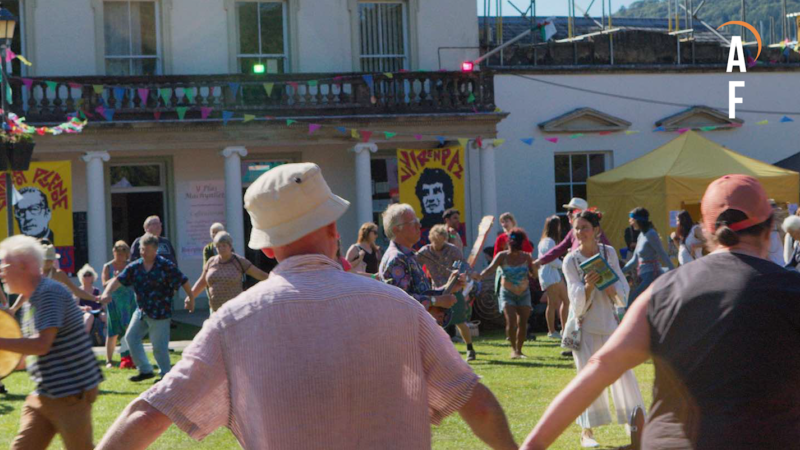Filmreel
(De)construction.
There's something to be said about an art form that makes you think of another whilst retaining a complete discernment of its own language.
I shall bypass a preamble here, in which I could go into depth about how that is not the case with Peter Greenaway's output (entertaining in some respects, but showing off a knowledge of classic art in detriment of true cinematic vision), or elaborate on how a peripheral lecture on Architecture in my first year at university was more about Cinema than most of what our tutors would subsequently have to say. No. I shall choose to go straight to the point with my subject of choice. This is Filmreel. I'm going to write about a song.
'Construção' (Construction) is the title track of the groundbreaking 1971 album by Brazilian singer-songwriter Chico Buarque. Whilst the political and historical context of its release is utterly crucial to understanding its message, I would like to centre more on Buarque's personal angle, as a man who understands and embraces the intrinsic poetry of the Portuguese language.
Contrary to the more light-hearted and often inconsequential flavours of the Samba that influenced him musically at an earlier stage, Buarque's writing has become the paradigm of existential melancholy. His songs are renowned for taking the perspective of the woman with such a truthfulness and compassion that within seconds you forget that it is a male voice you're listening to. They are short vignettes which offer a moving glimpse into the human condition by means of very specific, precise and simple storytelling. The same applies to 'Construção', despite its invitation for us to share the last moments in the life of a man, instead of a woman. From a narrative perspective, these moments are succinct and carefully selected, highlighting what the entire existence of this construction worker has been.
The evocative opening verses say everything in that sense, as they begin by describing - in the past tense, but with an overwhelming sense of immediacy - how this man "loved that other time, as if for the last", "kissed his wife, as if she was the last one", "and his offspring, as if the one and only"; proceeding with him "crossing the road with shy steps", "going up the construction, as if a machine", "erecting on the upper level four solid walls", "brick upon brick in a magical pattern", "his eyes filled with concrete and tears"; and how he then "sat down to rest as if it was Saturday", "ate beans and rice as if he was a prince", "drank to the point of choking as if he was a castaway", "danced and laughed as if he could hear music", "and tripped in the skies, as if he was drunk...", "and floated in the air as if he was a bird...", "and finished on the ground like a flaccid package"; it then matter-of-factly concludes that "agonising in the middle of the public pavement, he died against the flow, in the way of the traffic".
At this point, the instruments, which had remained restrained in a build up of anticipation and simply backed up the repetitive crescendo of the vocal melody, hit you loudly in almost dissonant notes. This momentary cacophony of sounds vividly evokes urban confusion, the sudden disorder of traffic and a disorientation of the senses - both ours and the character's at the point of impact. And we're only half way through the song, because what ensues displays an astonishing literary control by simply repeating the previous text with small alterations. The words are the same but they trade places, enhancing or changing their meanings altogether.
This is worthy of Samuel Beckett or Harold Pinter and, although a lot of the double meaning is inevitably lost in translation here, I would like to highlight a few examples. We start again with how he "loved that other time, as if he was the last one" - immediately suggesting how the dying construction worker is faintly aware that his wife's intimacy will go on without him; proceed with how he "kissed his wife, as if she was the only one" - in an internal confession of past or current adultery - "and each of his sons as if prodigal" - in simultaneous welcome and goodbye to his offspring.
Buarque's sole commitment from this point onward is to the subjectivity of the text, which in turn serves the overlapping of the character's recent memories, probably made unreliable by feelings of guilt and hopelessness. Crucially, he also invites our interpretation to cease to be rational and obey more to the empowering device of free association.
So, after the song's only narrative revelation - in which the worker is described to have "crossed the road with drunken steps", having gone up the construction in an over-confident manner and "erected on the upper level four magical walls" with "brick upon brick in a logical pattern" - absurdity begins to take over. This clarification of his state allows for every previously described detail to be heightened in a gradual transition from the momentarily exhilarated to the clumsily ridiculous in the eyes of others. Hence it finishes with him dying "against the flow, in the way of the passersby".
These shifts in the perspective of the events are what Cinema should be all about. To excel as an artistic expression, filmmaking needs to direct its tools, techniques and devices towards the core essence of what it aims to communicate. This is what 'Construção' does so magnificently, through the impressively lucid mind of Chico Buarque. His clarity of purpose is even more apparent in the shorter, sum-up return to the verses of his song. Delivered in a faster pace and backed by a whirlwind of musical notes, the mechanisation of this dying human being's whole existence is acknowledged at the most personal moment: when life is sucked out of him in a last breath and he dies "against the flow, a nuisance for the Saturday".
The statement 'This is better than most films...' has never been more accurate.
The lyrics of 'Construção' are available online, together with the video of a live performance of the song here.
JOÃO PAULO SIMÕES IS A PORTUGUESE FILMMAKER LIVING AND WORKING INDEPENDENTLY IN SHEFFIELD. HIS WORKS INCLUDE ANTLERS OF REASON AND AN ARRAY OF MUSIC VIDEOS AND DOCUMENTARIES. VISIT CAPTURAFILMES.BLOGSPOT.COM. )





